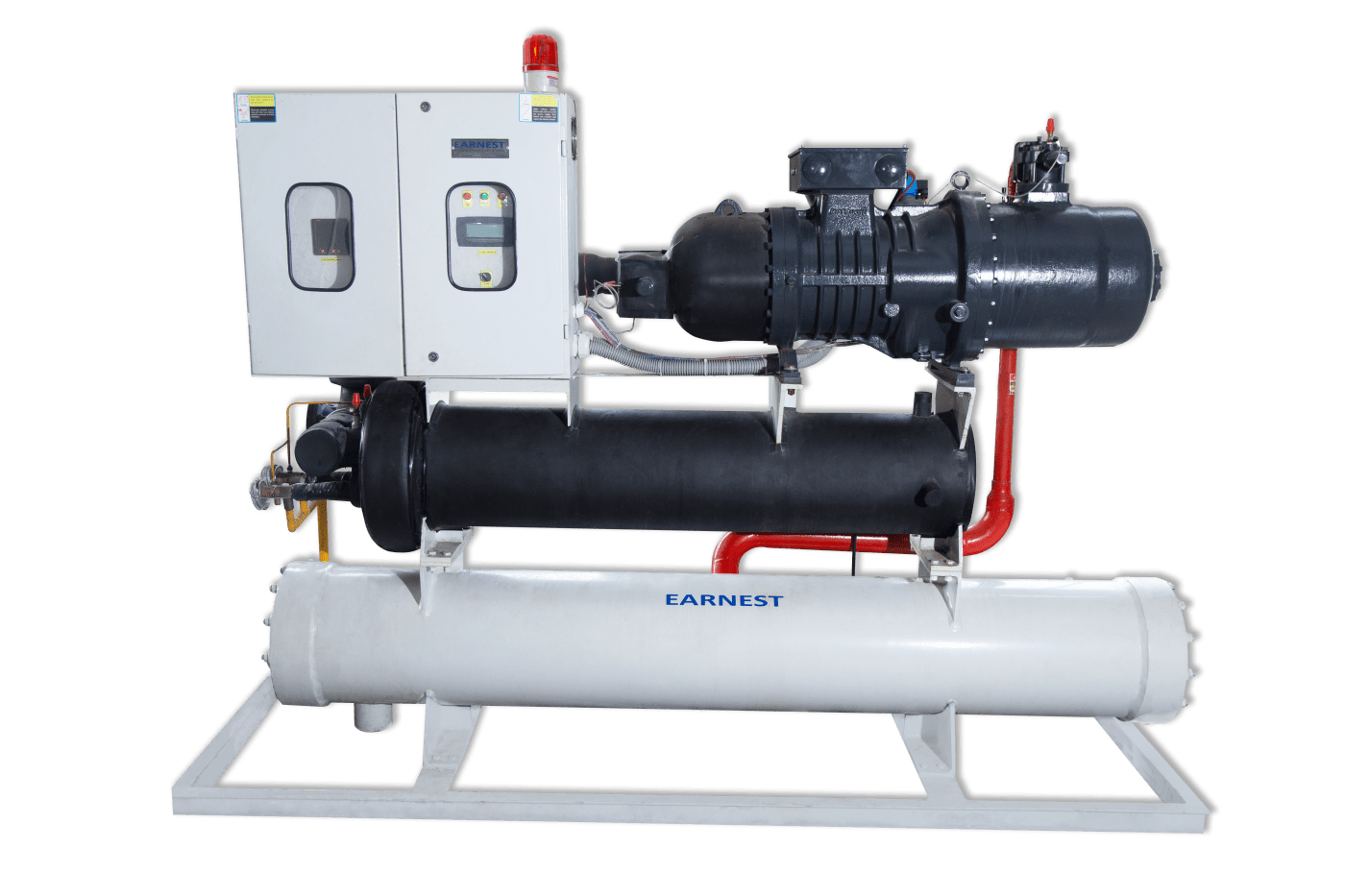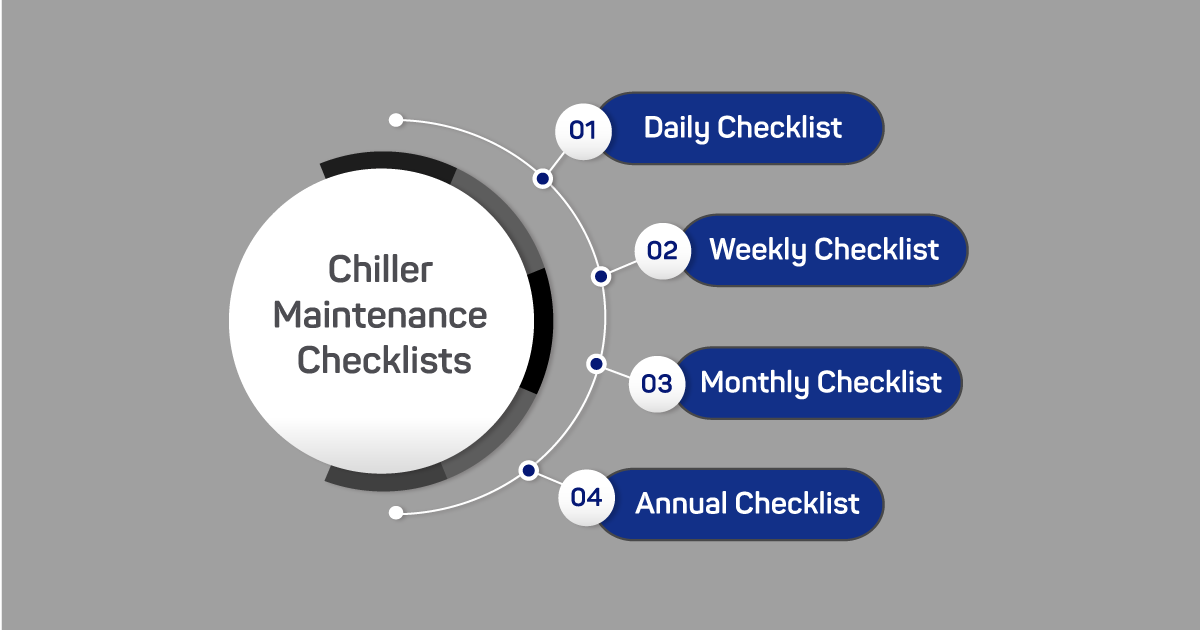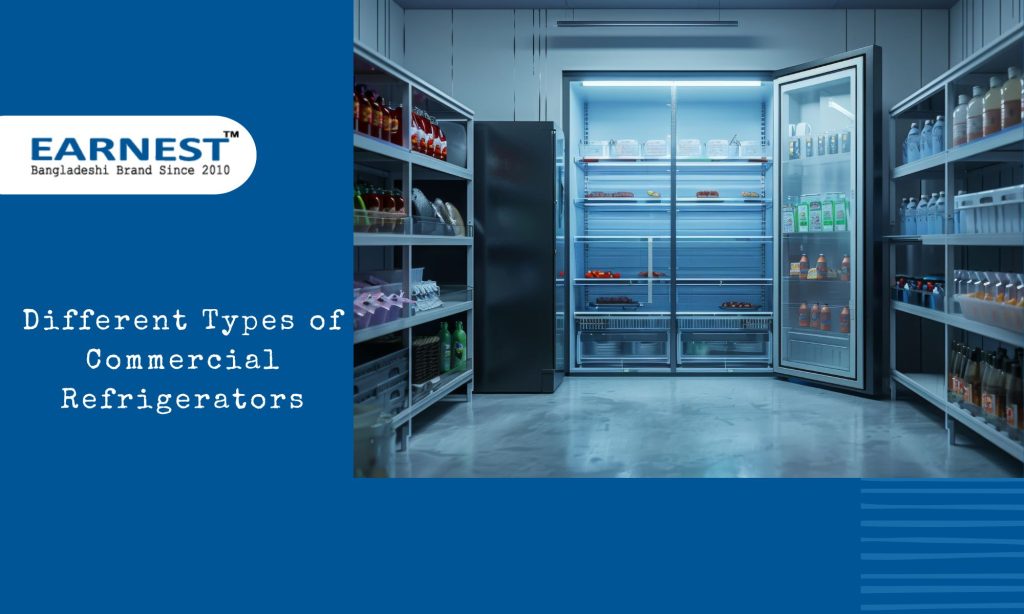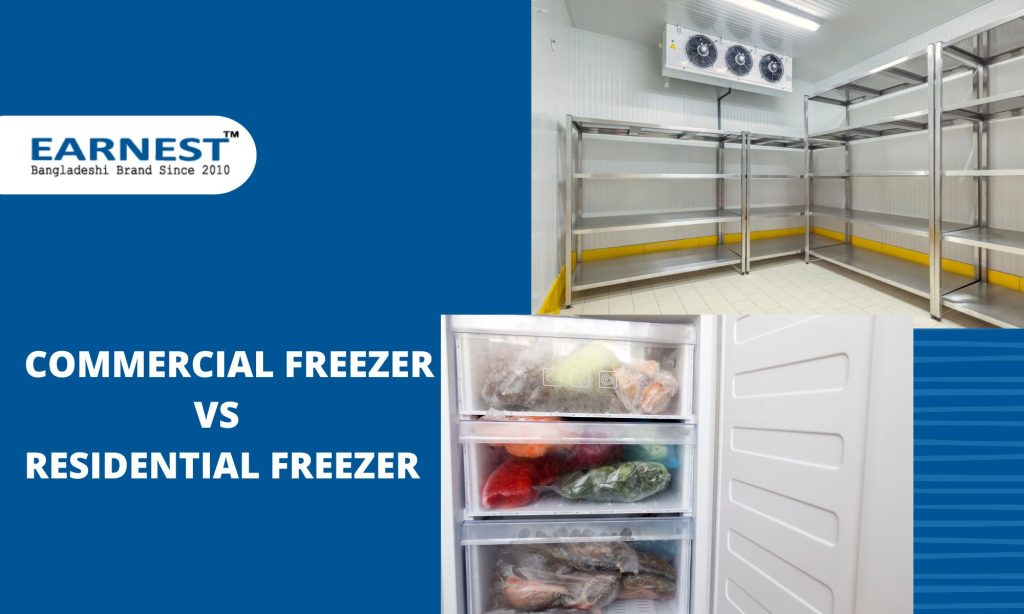Chiller Maintenance! A lot of machines operate in a factory. These machines generate tons of heat. So, factories use chillers to remove heat from their systems and cool the environment. Some processes such as injection molding, metal plating, oilfield production, and food processing need industrial chillers to cool them down. Below, we guide you on maintaining the chillers.
The purpose and importance of industrial chillers

Industrial chillers control temperatures, condition of air, and dehumidify the air in plants with machines and process fluids. All industries need heating and cooling processes running all day. Factories need chillers to run smoothly without damaging systems or causing safety dangers. Thus, maintaining industrial chillers is mandatory.
Types of industrial chillers and Chiller Maintenance
Mainly, three types of industrial chillers exist. These are Air Cooled Chillers, Water Cooled Chillers, and absorption chillers. Less-known chillers, such as glycol and centrifugal chillers, may also be used by some industries.
Air-cooled chillers: This type of chiller uses air to filter heat. Extra fans of the chillers remove heat from the factory atmosphere. Even though these types of chillers are easy to set up, they consume a high level of energy.
Water-cooled chillers: These chillers work by pumping water into the external cooling tower to block heat from a refrigerant that is made of gas. Water can absorb heat well so this chiller is very efficient.
Absorption chillers: These chillers use the heat generated via waste or solar energy in other industrial processes to drive heat away from the system. These chillers don’t use compressors.
Also Read: Overall Maintenance Guideline of Industrial Cooling Tower
Chiller maintenance checklists
If you want chillers to work well over a long time, you need to maintain them. Maintenance helps a machine operate consistently. It ensures durability and consistent performance. Industrial chillers should be maintained and checked daily, weekly, monthly, and yearly.
Following, we present some periodic checklists for maintaining chillers:
-
Daily chiller maintenance checklist:
- Checking the temperature of the chilled water flowing in and out of the chiller
- Checking and confirming the temperature of the condenser water flowing in and out of the system
- Examining the current dedicated to the compressor
- Having a look at the sump oil and its temperature
- Checking the pressure of the condenser and evaporator
- Examining and tracking the oil pressure readings
- Figuring out any unusual sound from the chiller system
-
Weekly chiller maintenance checklist
- Having a look at the sump oil level as well as the top-up
- Checking the level of liquid with the help of site glass
- Scrutinizing the pipes and coils for any signs of damage or leak
- Ensuring the outside of the condenser is kept intact
- Checking for unusual noise or movements from the operating machine
- Comparing the numerical outputs of all machine readings with the standard ones.
-
Monthly chiller maintenance checklist
- Examining machine parts for condition
- Checking lubrication levels in the centrifugal pumps and motors and adjusting accordingly if needed
- Ensuring the coils of the condenser are clean
- Cleaning and drying condensers from water strainers
- Operating the chiller at the highest power to check the condition of the liquid level in the evaporator
- Examining possible overheating of compressor motors and taking action if needed.
-
Annual chiller maintenance checklist
- Washing and cleaning condenser coils via chemicals
- Changing oil filters
- Putting new approved oil in the system.
- Restrengthening the parts of the air-cooled condensers.
- Changing liquid line filters if needed.
- Ensuring water strainers are strong and if need replacing them.
- Ensuring the water-cooled condensers have pure circulating water and pouring new volume if needed.
- Inspecting and confirming the vane damper is operating properly.
- Checking the condition of the water panel for full operation.
- Examining the contactors and tips of the components of the system.
- Replacing terminal lugs if problems are found after checking.
- Ensuring there are no loose ends in the circulation of electricity and the components related to it.
The above points of the checklists to maintain chillers over days, weeks, months, and years are just the standard ones. Operators and engineers should adjust and improvise maintenance matters as and when needed.
Also Read: What Is HVAC System And How Does An HVAC System Work?
Best practices for maintaining industrial chillers
Industrial chillers consume the most electric load of any factory machinery. This factor itself is good enough to make one understand that chiller will need high downtime in case of any unwanted occurrence. The factory owners may face huge losses and damages if industrial chillers are not maintained properly. Needless to say, maintaining industrial chillers is of high importance. Some of the best practices adopted by industry leaders to maintain chillers are as follows:
Cleanliness
Keeping the chiller and its tubes clean will assure the optimum performance of the machine. Keeping the surrounding environment clean will also help increase efficiency. Unwanted dirt, minerals, scales, etc. shall be removed via cleaning.
Maintenance records
Companies should keep a daily log of maintenance readings and reports. This is a basic requirement for proper maintenance. Comparisons will show the condition and progress of chillers. Some key measurements are temperature, pressure, fluid levels, and flow rates. These will help compile trend reports and track records, ensuring the smooth operation of the machine.
Preventive schedules
Doing scheduled checks as preventive measures helps realize any mismatch between reports and expected performance. These should be aligned with proper regulatory guidelines and practices. Software programs dedicated to such scheduling may be used to ensure consistency.
Treated water
Treating condenser water help prevent scaling and corrosion. All the condenser water loops need this treatment as they use the open cooling system. In addition, water treatment prevents the unwanted growth of biological elements.
Oil testing
One should regularly analyze the oil lubricants via “spectrometric” chemical analysis. This may be done on yearly bases. This helps identify if the oil is degrading and needs replacing
To Sum Up
Industrial chillers are essential for industrial facilities and need to perform at their best if the machines have to keep on working smoothly. Industry owners must ensure regular performance checks and preventive measures as per policies and standards. Dedicated chiller checking software and/or systems may be used in these matters.






